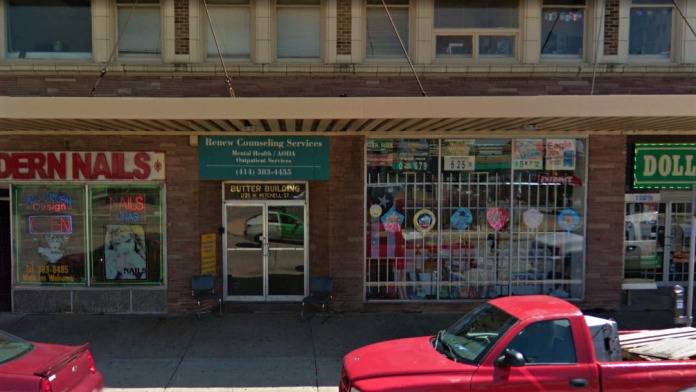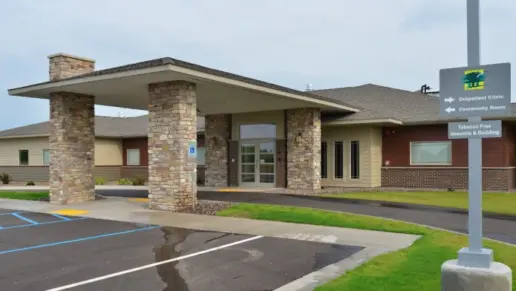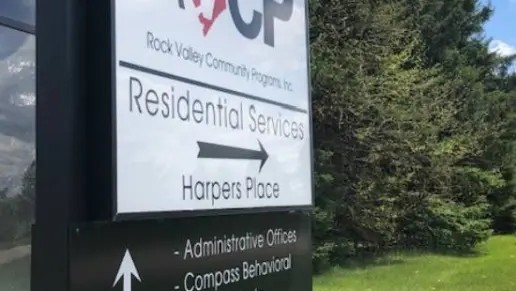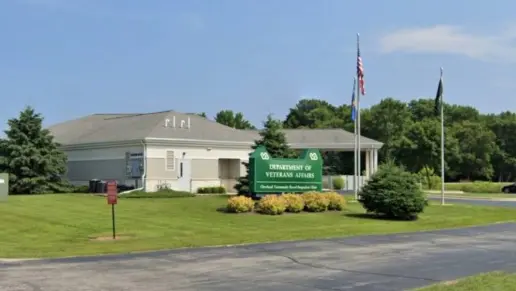Unprofessional staff, they don't care about their patients. I’ve spent more time waiting on hold during a phone call than I ever did with the therapists, unbelievable! It is a dirty, unprofessional place, so I would not recommend it for therapy.
About Renew Counseling Services
Renew Counseling Services in Milwaukee, Wisconsin, is a family owned practice operating since 1985. They provide mental health services such as psychiatric evaluations, substance abuse or gambling counseling, parenting skills, elderly AODA program and domestic violence support.
Renew Counseling Services in Milwaukee, Wisconsin, is a family owned practice operating since 1985. They provide mental health services such as psychiatric evaluations, substance abuse or gambling counseling, parenting skills, elderly AODA program and domestic violence support.
To get started, you’ll need to call or visit their office and schedule an appointment with an intake specialist. You’ll then meet your new therapist or counselor and begin treatment. Together, you’ll create a treatment plan that works towards your goals. If medication is part of your treatment plan, you’ll be referred to one of their onsite prescribing doctors.
Renew Counseling Services accepts Medicaid, Medicare, United Health Care, Molina and Milwaukee County Adult AODA/Wiser Choice. Their fees are listed on their payment agreement form so if you don’t have coverage, you’ll know exactly how much you’ll pay.
I like that they are active on social media and post tips such as 10 strategies to reframe negative thoughts. Some past clients say that this facility is clean and that staff are warm and helpful.
Latest Reviews
Rehab Score
Gallery

Location
Other Forms of Payment
Private insurance refers to any kind of healthcare coverage that isn't from the state or federal government. This includes individual and family plans offered by an employer or purchased from the Insurance Marketplace. Every plan will have different requirements and out of pocket costs so be sure to get the full details before you start treatment.
Self-pay involves paying for treatment out of your own pocket. You can use savings or credit, get a personal loan, or receive help from family and friends to fund your treatment. If you don't have insurance or your insurance plan doesn't cover a specific program, self-pay can help ensure you still get the care you need.
Financial aid can take many forms. Centers may have grants or scholarships available to clients who meet eligibility requirements. Programs that receive SAMHSA grants may have financial aid available for those who need treatment as well. Grants and scholarships can help you pai for treatment without having to repay.
Sliding scale payments are based on a client's income and family size. The goal is to make treatment affordable to everyone. By taking these factors into account, addiction recovery care providers help ensure that your treatment does not become a financial burden to you or your family, eliminating one barrier to care.
Medicare is a federal program that provides health insurance for those 65 and older. It also serves people under 65 with chronic and disabling health challenges. To use Medicare for addiction treatment you need to find a program that accepts Medicare and is in network with your plan. Out of pocket costs and preauthorization requirements vary, so always check with your provider.
Military members, veterans, and eligible dependents have access to specific insurance programs that help them get the care they need. TRICARE and VA insurance can help you access low cost or no cost addiction and mental health treatment. Programs that accept military insurance often have targeted treatment focused on the unique challenges military members, veterans, and their families face.
Medicaid is a state based program that helps lower-income individuals and families pay for healthcare. Medicaid covers addiction treatment so those enrolled can use their coverage to pay for rehab. When a program accepts Medicaid the client often pays very little or nothing out of their own pocket.
Addiction Treatments
Levels of Care
Treatments
The goal of treatment for alcoholism is abstinence. Those with poor social support, poor motivation, or psychiatric disorders tend to relapse within a few years of treatment. For these people, success is measured by longer periods of abstinence, reduced use of alcohol, better health, and improved social functioning. Recovery and Maintenance are usually based on 12 step programs and AA meetings.
The goal of drug rehab in Wisconsin is to address drug addiction as a complex issue that involves physical, mental, and relational aspects. During rehab, treatment focuses on each of these areas and gives you the tools you need to achieve and maintain sobriety.
Many of those suffering from addiction also suffer from mental or emotional illnesses like schizophrenia, bipolar disorder, depression, or anxiety disorders. Rehab and other substance abuse facilities treating those with a dual diagnosis or co-occurring disorder administer psychiatric treatment to address the person's mental health issue in addition to drug and alcohol rehabilitation.
In Wisconsin, dual-diagnosis rehabs provide beneficial comprehensive care if you're struggling with a co-occurring mental health and substance abuse disorder. You can usually expect treatment to include evidence-based therapies such as cognitive-behavioral therapy (CBT) and dialectical behavior therapy (DBT) in order simultaneously to address both conditions.
Opioid rehabs specialize in supporting those recovering from opioid addiction. They treat those suffering from addiction to illegal opioids like heroin, as well as prescription drugs like oxycodone. These centers typically combine both physical as well as mental and emotional support to help stop addiction. Physical support often includes medical detox and subsequent medical support (including medication), and mental support includes in-depth therapy to address the underlying causes of addiction.
Programs




Clinical Services
Group therapy is any therapeutic work that happens in a group (not one-on-one). There are a number of different group therapy modalities, including support groups, experiential therapy, psycho-education, and more. Group therapy involves treatment as well as processing interaction between group members.
Individual therapy offers you a tailored approach to treat drug addiction. This focuses on your unique needs and offers you personalized support outside of a group setting. You begin to understand what triggers your addictive behavior and develop coping skills that can support your recovery.
Research clearly demonstrates that recovery is far more successful and sustainable when loved ones like family members participate in rehab and substance abuse treatment. Genetic factors may be at play when it comes to drug and alcohol addiction, as well as mental health issues. Family dynamics often play a critical role in addiction triggers, and if properly educated, family members can be a strong source of support when it comes to rehabilitation.
Addiction treatment in Wisconsin emphasizes life skills training to help you relearn critical capabilities for day to day life. This training helps you build healthy, positive strategies for everything from self care, to career, to interpersonal relationships.
Amenities
-
Private Setting
-
Residential Setting
Contact Information
2500 W Layton Ave
#110
Milwaukee, WI 53221


